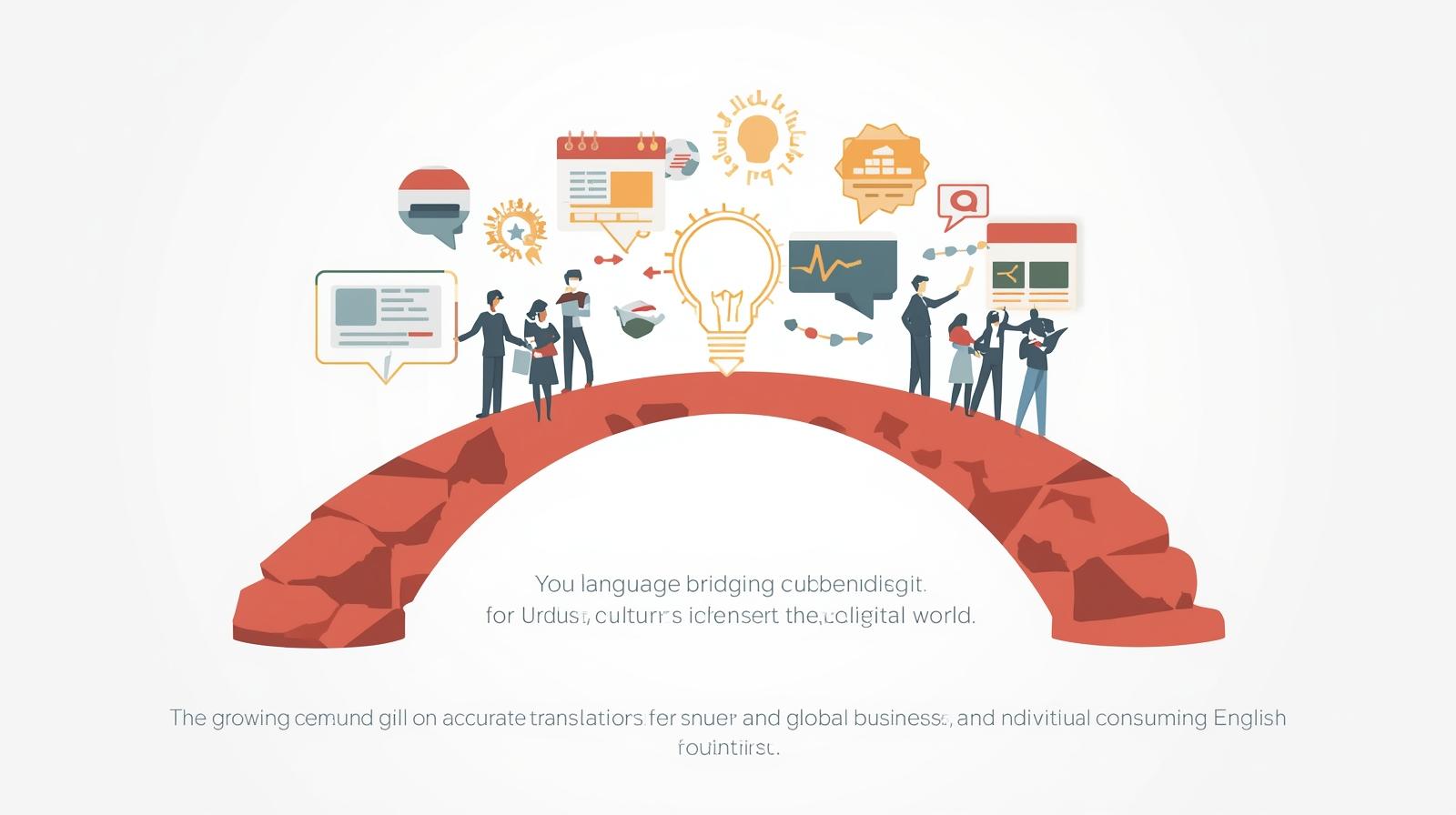In today’s globalized world, Urdu to English translations services have become increasingly important, especially in countries like the UK where a large Urdu-speaking community resides. Whether it’s for immigration documents, legal papers, or academic transcripts, accurate translation is crucial to ensure that your documents are accepted by government authorities and institutions.
Professional Urdu translators play a vital role in bridging the communication gap between Urdu-speaking individuals and English-speaking organizations. With the right translation, you can present your information clearly, correctly, and in a way that reflects the intended meaning — without errors or loss of cultural nuance.
The demand for certified Urdu translators in the UK continues to grow, especially among communities originating from Pakistan, India, and other South Asian countries where Urdu is widely spoken.
Disclaimer: We do not give any legal advice to any client. We only do Translation we do not give any authenticity and security and clarity of the documentation, as a disclaimer., we only do the Translation, it is the responsibility of the applicant to make sure they maintain authenticity of the document, if the documents are not authentic, the translation will be void
What is Urdu-to-English translation?
“Urdu to English translation” refers to the process of converting written or spoken Urdu text into English while keeping the meaning, tone, and cultural context accurate. It is not only about word-for-word translation but also about making sure the message is clear and natural for English readers.
For example:
-
Urdu: “آپ کیسے ہیں؟”
-
English: “How are you?”
Although this looks simple, real-life translations are often much more complex.
Common Documents Requiring Urdu to English Translation
Urdu to English translation services cover a wide range of document types. Below are some of the most commonly requested:
-
Personal Documents: Birth, marriage, and death certificates; passports; ID cards
-
Educational Documents: Transcripts, diplomas, academic certificates, and recommendation letters
-
Legal Documents: Contracts, court orders, power of attorney, and affidavits
-
Business Documents: Invoices, company registration papers, partnership agreements
-
Medical and Technical Documents: Prescriptions, medical reports, user manuals, and research papers
Each of these document types requires not only linguistic expertise but also knowledge of formatting and terminology accepted by UK authorities.
The Tanveer Principle in UK
The Tanveer Principle in the UK plays a vital role in ensuring fairness within asylum and immigration cases. It guides decision-makers to rely on credible, verifiable evidence rather than assumptions or personal impressions.
This principle protects applicants by ensuring that caseworkers assess documents carefully, especially when authenticity is questioned. It prevents unfair refusals based on speculation.
In the UK immigration system, the Tanveer Principle strengthens transparency and accuracy. It ensures that every applicant is judged on the basis of proper evidence, promoting justice and consistency throughout the asylum and immigration process.
Urdu to English Asylum Translation Service in UK
Setranslations.uk provides fast and reliable Urdu to English asylum translation services for clients across the UK. We help you translate essential documents clearly and professionally.
Our team delivers accurate translations for asylum applications, supporting letters, personal statements, and official documents. Every translation is handled with care to ensure clarity and smooth submission.
Disclaimer: We do not give any legal advice to any client. We only provide translation services. We do not offer authenticity, security, or clarity of the documentation. It is the applicant’s responsibility to ensure the documents are authentic; otherwise, the translation will be void.
Professional Urdu Translators vs. Machine Translation
While it might be tempting to use free online tools like Google Translate, machine translation often fails to capture the depth and accuracy required for official or professional use. Automated systems struggle with context, idioms, and cultural nuances, which are critical in Urdu-English translation.
In contrast, professional human translators ensure:
-
Contextual accuracy
-
Proper grammar and syntax
-
Cultural and linguistic relevance
-
Compliance with official standards
Machine translations can lead to costly errors, especially for legal or immigration documents. That’s why only certified human translations are accepted by the UK Home Office, universities, and courts.
Qualities of a Reliable Urdu to English Translation Service
When selecting a translation service, it’s essential to ensure that they meet professional standards. Look for:
-
Certified Translators: Approved by recognized institutions or translation bodies.
-
Language Expertise: Native-level fluency in both Urdu and English.
-
Confidentiality: Secure handling of personal or legal documents.
-
Quality Assurance: Multi-level proofreading and verification process.
-
Timely Delivery: Meeting deadlines without compromising accuracy.
A reputable agency will always provide you with a certificate of accuracy confirming that your translation is authentic and faithful to the original.
The Translation Process: Step-by-Step
Here’s how most professional Urdu to English translation agencies handle your documents:
| Step | Process | Description |
|---|---|---|
| 1. Document Review | Initial assessment | Translator reviews your document type and content to provide a quote and timeline. |
| 2. Translation | Expert translation | A qualified Urdu-English translator translates the content accurately. |
| 3. Proofreading | Quality assurance | The translation is checked by another linguist for accuracy and completeness. |
| 4. Certification & Delivery | Final approval | Certified translation is prepared and delivered electronically or by post. |
This structured process ensures high-quality and legally accepted results every time.
Why Urdu-to-English Translations are Important?
1. For Students
Many Pakistani, Indian, and Bangladeshi students study in international universities where English is the medium of communication. Translating documents, essays, or research papers from Urdu to English is necessary for admissions and academic success.
2. For Businesses
Global trade and freelancing demand English communication. A local business offering services in Urdu must translate its website, product descriptions, and marketing material into English to reach a global audience.
3. For Professionals
From legal documents to medical reports, accurate Urdu to English translations ensure that professionals can communicate clearly with clients, companies, and institutions abroad.
4. For Daily Communication
Emails, social media posts, or simple messages sometimes need to be converted from Urdu to English for better understanding.
Challenges in Urdu to English Translations
Translating between Urdu and English is not always straightforward. Some challenges include:
-
Grammar Differences: Urdu has a different sentence structure than English.
-
Idioms & Expressions: Urdu idioms may not have direct English equivalents.
-
Cultural Context: Some Urdu words carry cultural meanings that need careful adaptation.
-
Technical Terms: Medical, legal, and business terms require expertise for accurate translation.
Best Tools for Urdu to English Translations
While professional translators are always the best choice, many online tools can help you with quick translations:
-
Google Translate—Free and widely used, but not always 100% accurate.
-
Reverso—Great for context-based translation.
-
Linguee—Offers word meanings with real-life sentence examples.
-
Microsoft Translator—Supports both text and voice translations.
-
DeepL Translator—Known for producing more natural translations (though Urdu support is limited).
These tools are good for everyday use, but for official or professional documents, always choose human translators.
Benefits of Professional Urdu to English Translation Services
Hiring an expert translator has many advantages:
-
Accuracy: Ensure the meaning and tone are preserved.
-
SEO Benefits: For websites, professionally translated content ranks better on search engines.
-
Time Saving: Professionals work faster with higher quality.
-
Cultural Relevance: Human translators understand cultural differences better than machines.
How to Choose the Right Urdu to English Translation Service?
When selecting a translation service, keep these points in mind:
-
Experience: Check the translator’s experience in your required field.
-
Accuracy Rate: Look for customer reviews and accuracy levels.
-
Specialization: Choose translators who specialize in legal, academic, or business content.
-
Turnaround Time: Ensure they can deliver within your deadlines.
-
Cost: Compare rates but never compromise quality for a lower price.
Tips for Better Urdu to English Translations
If you are translating yourself, follow these tips for better results:
- Keep sentences short and clear.
- Focus on the meaning, not just the words.
- Use simple English for better understanding.
- Avoid literal translation of idioms.
- Always proofread your work.
Future of Urdu to English Translations
With the rise of AI tools and globalization, translation is becoming more advanced. However, human translators will always remain important because machines cannot fully understand cultural depth and emotional tone.
In the future, we can expect a blend of AI speed with human accuracy, making Urdu-to-English translations faster, cheaper, and more reliable.
Frequently Asked Questions (FAQs)
1. How long does Urdu to English translation take?
Most simple documents are completed within 24–48 hours. Urgent same-day services are also available.
2. Are your translations accepted by the UK Home Office?
Yes, certified Urdu translations are officially recognized by the UK Home Office, courts, and universities.
3. Do you provide notarized or legalized translations?
Yes. Notarized and apostille services are available upon request.
4. Can I get same-day translation service?
Absolutely. Many professional agencies offer express translation for urgent needs.
5. How do you ensure translation accuracy?
Every translation goes through a two-step verification process — professional translation followed by proofreading and certification.
Final Thoughts
Urdu to English translations are not just about changing words from one language to another. They are about building connections, sharing knowledge, and opening doors to new opportunities. Whether you are a student, professional, or business owner, investing in high-quality translations can give you a competitive edge in today’s globalized world.
If you are looking for accuracy, professionalism, and cultural understanding, always rely on expert translation services rather than free tools alone.
By making smart choices in translations, you can ensure that your message is clear, professional, and impactful for a global audience.











